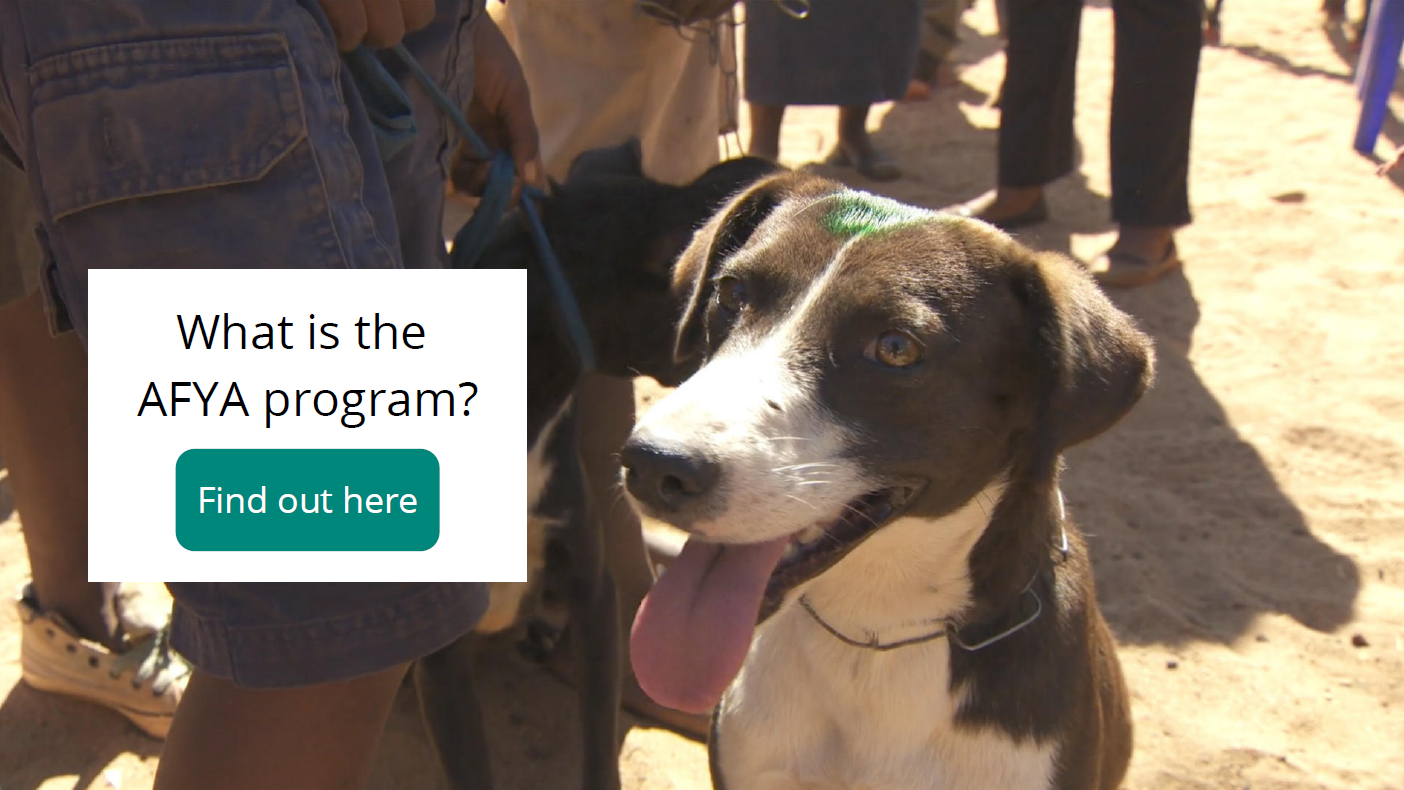Removing the cause to eliminate the risk...
Vaccination of people involves three doses, can be costly to implement, and represents practical concerns in rural areas which are seeing the highest levels of disease. Focusing resources on vaccinating the human population would still leave the source of infection, the reservoir of disease in the canine population, as a persistent threat. Mass vaccination of domestic dogs is a much more practical way of managing local rabies levels, reducing and eventually eliminating risk to human life.
-
Our opportunity to eliminate rabies
Rabies is almost completely confined to Africa and Asia. Animal populations form a reservoir for the disease with domestic dogs transmitting most human cases through bites or scratches. Highly effective canine vaccines are available and the targeted administration of these can and will bring an end to this unnecessary disease.
Education & Awareness
Alongside the canine vaccination programs, education and awareness are vital. Learning what to look out for in affected animals, and how to treat a bite wound is essential. Thorough cleaning and disinfecting of wounds, and post exposure treatment can save lives.
Providing the correct education and awareness around the disease, especially to children, can be crucial in preventing the spread of rabies. This can include how to avoid being bitten, understanding animal behaviour and what to do in the event of a bite.
Global Approach to Rabies
Rabies has been a global focus for many years now, with a One Health approach being driven by the World Health Organisation amongst others, combining the energies of human and animal health providers to commit to Zero deaths by 2030. Organisations like Mission Rabies, Sharon Live On Foundation and Rabies Free Africa have been working tirelessly in vulnerable communities for many years.
Find out how MSD and the AFYA program supports these organisations and how you can get involved from your own practice.






